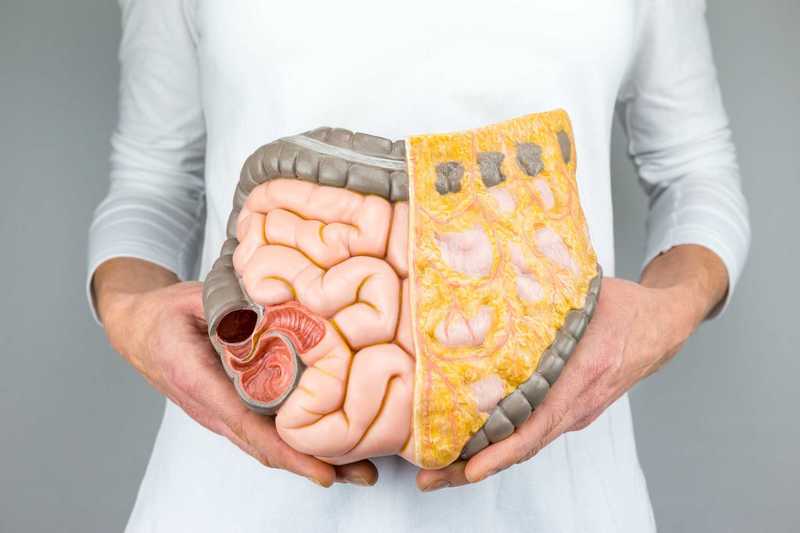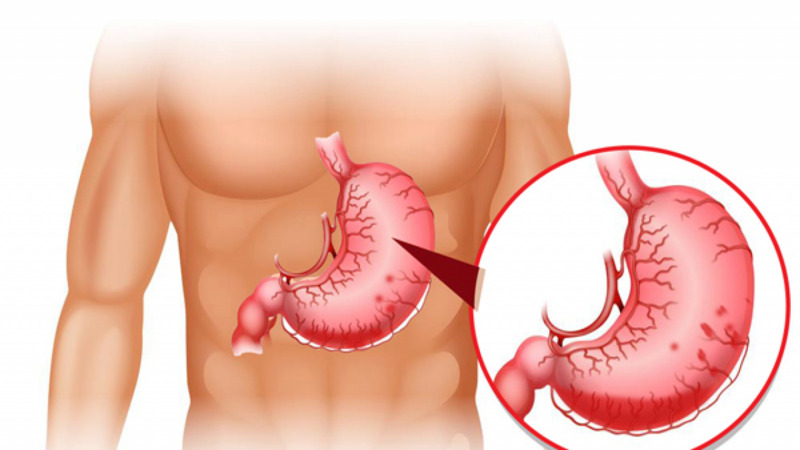If you understand the digestive system and how these organs work, you can protect and improve the function of this organ better, and at the same time prevent many related diseases.
1. What organs does the digestive system consist of?
The human digestive system consists of many organs, starting from the mouth where food is received to the anus where undigested substances are excreted. This organ is responsible for breaking down the structure and absorbing the necessary nutrients from food for use in life activities. To do this, it requires a combination of both mechanical chewing and grinding and biodegrading enzymes.

The digestive system consists of many organs and plays a very important role in the body.
Below are the specific functions of each organ in the digestive system:
1.1. Throat
The throat is where food is received from the mouth to go down the esophagus. This is only an intermediate organ that helps transport food.
1.2. Esophagus
The esophagus is located below the throat, a long tube that functions to bring food down to the stomach. The esophagus creates peristaltic contractions to push food down, while keeping food in the stomach from refluxing with a mechanical “valve”.
1.3. Gallbladder
This is a small sac, located close to the liver, about 80 – 100mm long. The gallbladder has the function of contracting and pushing bile into the common bile duct, from there into the duodenum and down to the small intestine, helping to digest fats. The gallbladder plays an important role in the body’s digestive system.
1.4. Liver
The liver plays an important role in the digestive system, helping to synthesize plasma proteins, store glycogen and detoxify. This is considered the body’s chemical factory, responsible for and regulating biochemical reactions.

The stomach is an important organ for digestion and food breakdown.
1.5. Stomach
The stomach is an important organ, it is structured as a bag consisting of many muscles. When receiving food from the esophagus, acid and enzymes will be secreted, mixed with food to hydrolyze proteins and necessary nutrients.
The storage time of food in the stomach is quite long because it has to carry out the process of decomposing most of the food, resulting in a liquid or paste that will be moved to the small intestine.
1.6. Small intestine
The human small intestine is up to 6 meters long, where food will continue to be decomposed, broken down by enzymes secreted from the liver or pancreas. With such a length, intestinal peristalsis helps food move throughout this organ, while mixing food with digestive juices.
Food through the small intestine continues to be decomposed in the duodenum, then nutrients are absorbed in the jejunum and ileum before being transferred into the blood.
1.7. Colon
When the process of digestion and absorption of nutrients is finished, the remaining unabsorbed substances will be transferred to the colon in liquid form. Here, the colon continues to absorb water from the liquid to convert waste into solid form, also known as feces. Normally, feces are processed in the colon for about 36 hours.

The colon is where excess food is processed into feces.
Stool mainly consists of food debris and bacteria. These bacteria also perform many useful functions for the body such as: synthesizing vitamins, processing waste, sediment, protecting the body against harmful bacteria.
1.8. Rectum
The rectum is located just below the colon, about 20cm long. When stool moves down here, special nerves will be stimulated, then transmit signals to the cerebral cortex to tell you that you need to defecate.
In young children, especially infants, this function is not fully developed, so children cannot defecate on their own. In adults, when they want to go to the toilet, the brain sends a signal to relax the sphincter to push stool out of the body. If you want to hold it, the sphincter and rectum will adjust, temporarily ignoring the feeling of wanting to go to the toilet, and stool will continue to be retained here.

Food goes through a long digestive process so that the body can best absorb nutrients.
1.9. Anus
The anus is the last organ of the digestive system, made up of the pelvic floor muscles and the anal sphincter. The function of this organ is to store and excrete feces. When going to the toilet, the anus secretes lubricating mucus so that feces can move easily out of the body.
Thus, food digestion in humans is a long, complex process with the participation and coordination of many organs in the body. Any problem that occurs in any organ of the digestive system can affect and hinder the digestion of food and absorption of nutrients.
2. What do you need to eat to have a healthy digestive system?
When these organs do not function well, you may experience many conditions such as constipation, hemorrhoids, gastric reflux, malnutrition, nutrient deficiencies, etc. With non-pathological disorders, you can treat and strengthen the digestive system without medication with foods such as:
2.1. Water
Lack of water is a common cause of constipation. The human body needs to absorb 2-3 liters of filtered water per day, you need to drink more if you exercise, work too hard or live in hot climates.
In addition to filtered water, you should also eat a variety of fruits and vegetables that contain a lot of water such as: zucchini, strawberries, melons, celery, cucumbers, …

Drinking plenty of water helps the digestive system work better
2.2. Good fats
You need to supplement enough fat into your body, but prioritize good fats to absorb nutrients effectively. Foods rich in good fats should be supplemented including: chia seeds, walnuts, fatty fish (mackerel, salmon, sardines), flax seeds, etc.
2.3. Fiber
The body does not have enzymes to digest fiber, but this nutrient is very beneficial for the digestive system.
Soluble fiber is found in oats, barley, beans, fruits, etc. It has the ability to absorb water into a gel form that moves easily in the digestive system. Absorbing a lot of this fiber helps increase beneficial intestinal bacteria, strengthen the immune system and digestion, and prevent the absorption of cholesterol and sugar into the blood.
Insoluble fiber is abundant in whole wheat flour, beans, nuts, cauliflower, whole grains, etc. This nutrient is not soluble in water, so the body cannot break down and absorb it, but it will increase the mass, promote the elimination of waste and excess products of the digestive system.
In addition, some nutrients have the ability to support the digestive system well such as: Glutamine, Probiotic, zinc, etc.
Thus, daily eating and living habits have a great influence on the functioning of the digestive system. Hopefully, the information we provide above will help readers better understand the operating mechanism, thereby protecting and enhancing the functioning of these organs more effectively.





